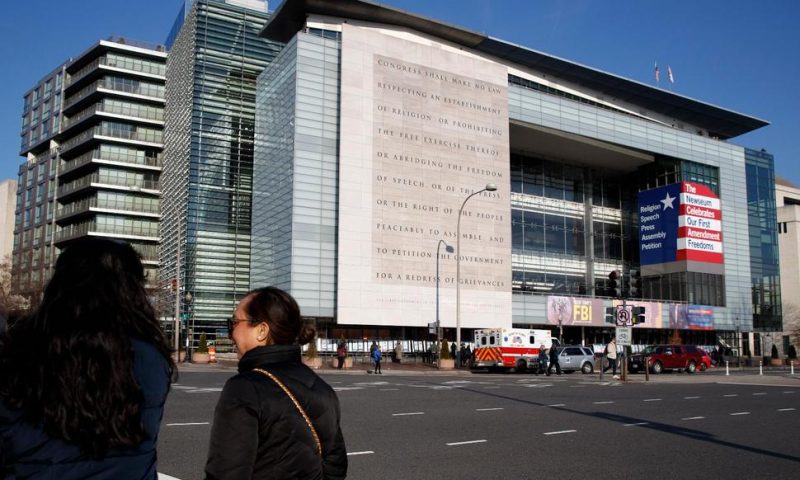The Newseum — a private museum dedicated to exploring modern history as told through the eyes of journalists — is closing its doors after 11 years.
WASHINGTON — In 2008, the Newseum — a private museum dedicated to exploring modern history as told through the eyes of journalists — opened on prime Washington real estate.
Sitting almost equidistant between the White House and the Capitol on Pennsylvania Avenue, the glass-walled building became instantly recognizable for its multi-story exterior rendition of the First Amendment.
Eleven years later that experiment is coming to an end. After years of financial difficulties, the Newseum will close its doors Tuesday.
“We’re proud of how we did our storytelling,” said Sonya Gavankar, the outgoing director of public relations. “We changed the model of how museums did their work.”
The building was sold for $372.5 million to Johns Hopkins University, which intends to consolidate its scattered Washington-based graduate studies programs under one roof.
Gavankar attributed the failure to a variety of factors but acknowledged that the Newseum’s status as a for-pay private institution was a harder sell in a city full of free museums. A Newseum ticket costs $25 for adults, and the building is right across the street from the National Gallery of Art and within blocks of multiple Smithsonian museums.
“Competing with free institutions in Washington was difficult,” Gavankar said.
Another problem, organizers said, is that the Newseum struggled to attract local residents, instead depending on a steady diet of tourists and local school groups. Actual Washington-area residents, who do frequent the Smithsonian and elsewhere, mostly came on school trips and rarely returned as adults.
Claire Myers fits that profile. The D.C. resident recalls coming to the Newseum in high school in a senior-year class trip. She only returned in late December for a final visit because she heard it was closing at the end of the year.
“I do think part of the reason was because it’s a paid museum,” she said. “Why go out of my way to do this when I could just go to any other free museum?”
The $25 price tag, Myers said, creates a pressure to set aside the whole day and take in every exhibit, whereas at one of the free Smithsonian museums, she knows she can come back another time to catch whatever she missed. But Myers said she was deeply impressed by the exhibits, particularly the Newseum’s signature gallery of Pulitzer Prize-winning photographs.
“I do wish it wasn’t going away,” she said.
The museum’s focus evolved over the years, showcasing not just journalism and historic events, but all manner of free speech and civil rights issues and some whimsical quirks along the edges. Exhibits during the Newseum’s final days included an exploration of the cultural and political influence of Jon Stewart and “The Daily Show,” a look at the history of the struggle for LGBTQ rights and a display depicting the history of presidential dogs.
Gavankar said the Freedom Forum, which originally maintained the Newseum in northern Virginia for years, would continue its mission in different forms. The educational foundation maintains a pair of exhibits on the Berlin Wall in both Reagan and Dulles airports. Next year, those displays will be replaced by exhibits on the women’s suffrage movement. The current Rise Up! exhibit on LGBTQ rights will move to a new long-term home in the Museum of Pop Culture in Seattle.

